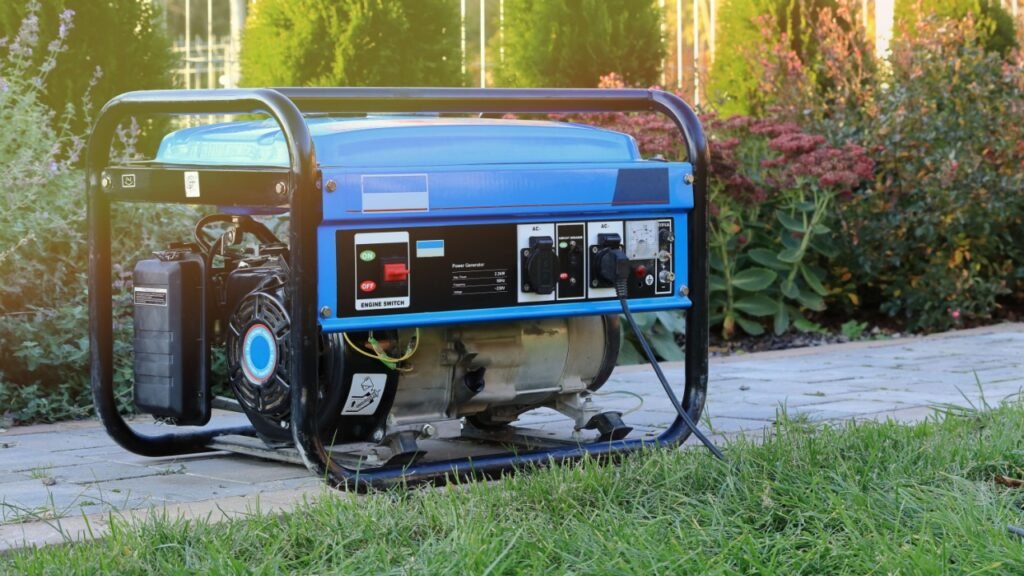When winter storms hit, they don’t just bring snow—they can knock out power for hours or even days. As someone who takes preparedness seriously, I know that being ready for a winter storm means having more than just a flashlight on hand. Cold temperatures, freezing rain, and high winds can create dangerous conditions if you’re not prepared. But with the right supplies and know-how, you can stay safe and comfortable, even when the power goes out. Below are 12 essential preps I recommend to ensure your home and family are ready when winter storms hit.
Stock Up On Non-Perishable Food

When the power goes out, you won’t be able to rely on your fridge or freezer for long. Stocking up on non-perishable foods like canned goods, dried pasta, and shelf-stable meals can keep you nourished for days. Don’t forget about manual can openers, and try to choose food that doesn’t require much cooking or heating, in case you’re without a stove.
Store Water For Drinking And Washing

If your water supply is affected by the outage, you’ll need to have water on hand. Store at least one gallon of water per person per day, enough for three days at minimum. It’s also smart to fill your bathtub or large containers with water before the storm hits. This water can be used for flushing toilets or washing dishes when necessary.
Get A Backup Heating Source

Without electricity, your central heating system will be offline, so a backup heating source is critical. Kerosene heaters, propane heaters, and wood stoves can all provide warmth. Just make sure whatever you use is safe for indoor use, with proper ventilation. It’s also a good idea to have extra blankets, sleeping bags, and warm clothing for layering.
Charge Power Banks For Electronics

A reliable power bank can keep your phone charged, which is essential for communication and checking weather updates. Have a few fully charged before the storm hits, and consider solar-powered chargers as well. While your phone might not keep you warm, it can help you stay connected to emergency services and news updates.
Prepare A First-Aid Kit

During a winter storm, emergency services may be delayed. A well-stocked first-aid kit can handle minor injuries and illnesses until help arrives. Bandages, antiseptics, pain relievers, and any prescription medications should all be included. Make sure to check your kit regularly and replenish items that expire or get used.
Invest In A Battery-Powered Or Hand-Crank Radio

A battery-powered or hand-crank radio will allow you to receive important weather alerts and emergency instructions when the power is out. It’s a low-tech solution, but when Wi-Fi and cell towers go down, it might be your only connection to the outside world. Keep extra batteries on hand if you choose a battery-powered model.
Keep Flashlights And Lanterns Handy

Candles can be a fire hazard, especially during high winds or in homes with children or pets. Instead, stock up on LED flashlights, headlamps, and battery-operated lanterns. They last longer and are much safer than open flames. Be sure to have plenty of spare batteries, and place lights where they’re easy to find in the dark.
Insulate Your Home For Better Heat Retention

Even without power, keeping the heat you already have inside can make a big difference. Insulating your windows with plastic sheeting, using draft stoppers on doors, and closing off unused rooms can help your home retain heat longer. Heavy curtains and rugs also keep the cold out while adding an extra layer of comfort.
Have A Plan For Your Pipes

Cold temperatures can cause pipes to freeze, and without power, you may not have heat to keep them warm. Wrapping exposed pipes in insulation or heat tape can help prevent this. If the power does go out, leave your faucets on a slow drip to keep water flowing and reduce the chance of freezing.
Make Sure Your Car Is Ready For Emergencies

If you need to leave your home or get stranded while driving, having an emergency kit in your car is essential. Blankets, an ice scraper, jumper cables, and a flashlight should be in your vehicle at all times. Don’t forget to keep your gas tank at least half full to avoid freezing fuel lines.
Get A Generator Or Alternative Power Source

A portable generator can power essential appliances, like your refrigerator, sump pump, or a small heater. Just make sure to operate it outside, away from windows and doors, to avoid carbon monoxide buildup. If a generator is out of reach, consider smaller power sources like propane camp stoves or solar-powered gadgets to keep essentials running.
Create A Communication Plan

If the power outage lasts longer than expected or roads become impassable, you’ll want a communication plan to stay in touch with family and friends. Make sure everyone knows where to meet or who to call in an emergency. Sometimes, even a simple whistle or walkie-talkie can be a lifesaver when phones aren’t an option.

